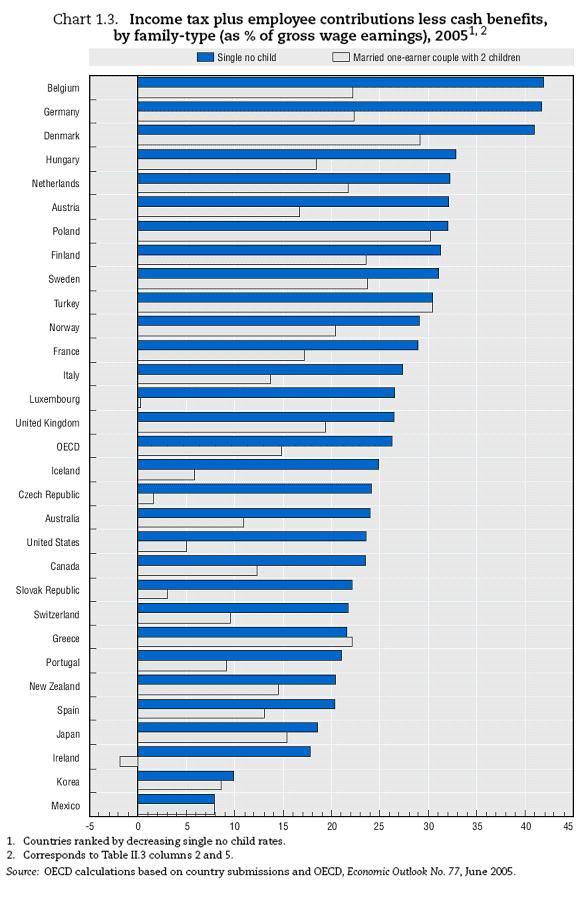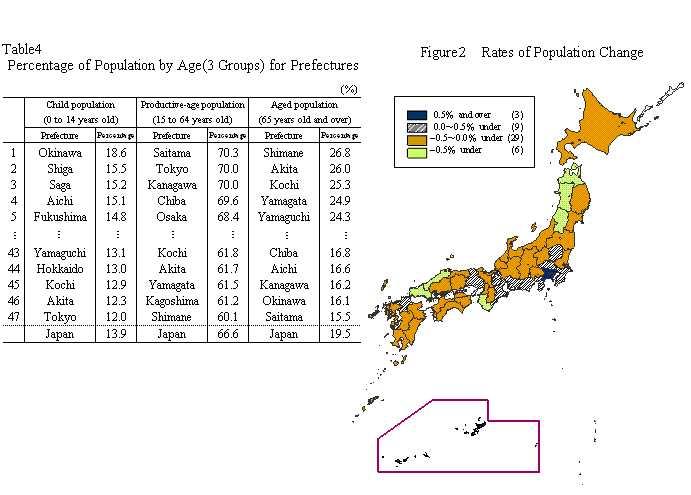Bon j'ai pense vous faire partager ce que j'ai ecrit pour un cours d'economie ici: C'est sur le probleme du taux de natalite et du vieillissement.
Ce n'est pas un rapport mais un support pour une presentation orale du sujet .Je devais me limiter a une feuille double, j'en suis a 2 . Bon on m'en voudra pas ...
Le rapport viendra d'ici 3 semaine. C'est donc volontairement tres court et des fois reducteur ( en fait surtout la fin , ou j'ai du me faire violence pour conprimer). Je mettrai aussi le rapport fini je pense.
Par contre si quelqu'un veut s'en servir sur d'autre forums , site , ou autre, je veux etre mis au courant, et donner mon autorisation.
pardon pour les non anglophones, mais c'est tout en Anglais. Traduction a venir.( ah oui c'est fait un peu a l'arrache , pardonnez les fautes)
-----------------------------------------------------------------------------------
JAPAN BIRTH RATE AND THE FORTHCOMING PROBLEMS
Introduction
While France is experiencing a boom in the births recently ( with a natural natality rate of 1.94 ) , Japan is facing a real problem with a birth rate of only 1.29, wich has started , for the forst time in Japan history , a decrease in the total population in 2005: In 2005 Japan lost 30 000 people. And this not going to stop anytime soon:
What are the reasons ,what are going to be the consequences and what can do Japan, to reverse this trend. We are going to discuss these issues.
I)Sociologic factors
Japan, as a develloped country, has experienced the same trends as France recently:
-The numbers of women working has dramatically increased on the labor market
-An increase of single people, especially women
-a lowering rate of weddings (Fr:4,9 Jpn:5,7 )
-the fact that the first child, in a couple, comes later than before.
In fact , as in France, people tend to get married later and to have children later.But in France this has only little effect on the birth rate. Why?
Japan as a long confucianist tradition, in which « marriage »( wedding) is very important if you want to have children, while in France it is now common to have children without getting married.In Japan , even if the mentality is evolving, the wedding is necessary if you want to have children.
In fact , the children born whithout non-married parents , or single moms, often suffer discrimination. Here are the facts: In 2005 in France, 48,3% of the children are born without their parents being married ( 60% for the first one) , while in Japan this is only ...1,6% !!!
Today , marriage in Japan is considered a lost of freedom from lots of young couples and japanese women, who talks about the burden of raising children and staying at home, while the man works. This traditional view is rejected by young women who wants to work and be independent.
Those womens dont want to loose the social status and the income they gained by going to university.
So why is there such a difference with France? Lets take a look at some economics facts.
II)Economics factors
There is huge difference between France and Japan: France subsidize children, while Japan dont. ( See chart below)
In Japan ,the cost of education is almost conpletely assumed by the family , while in France the network of « free » public schools and subsidies are important. In Japan , education fees are around ¥ 30 000 000(220 000 euros). In France « free » school can start at age 3 , while in Japan its age 6. The difference must be payed by the parents who have to find a nursury by their own. Even if they are waiting list in france too , it is easier to find someone to keep your children in France, because of the fiscal gift. Here are the facts: Japan spent only 3,7% of the social spendings on family and birth policy, while 55% towards the elderly !
( We assume here that frenchs are economicaly « blind », they do in fact pay their school with much higher tax rates, but they do not realize it immediatly because it is delayed in time.We can see this with the difference in the chart: France average income tax rate is over 30 % for singles and 18 % for couples, why it is 19% for single and 15% for couples. In France, the singles pay for the couple.)
So here is a important difference as seen in the Chart: When you are single, you have a average 19% of income tax , while in couple 15%, wich is a minus 4% only. Its almost nothing compare to the almost minus 15% of difference in tax burden over French couples.
This is a powerfull incentive to have children. Here ,the difference betwen the two states are the important fact.
We also have to look at some labor laws in France: It is forbidden for a company to fire a pregnant woman, and the company has to employ her again after the birth of the child. By this mean French woman can work , be independent, earn their money and still manage to have children, something witch is impossible in Japan.
III)Conclusion: The forthcoming problems and solutions
Japan has a aging and declining population, and this brings some serious problems:
An decreasing work force means a decreasing domestic market( a large part of Japan recent economic recovery comes from the domestic market) , an decrease in the tax revenues ( less households taxables on income,less companies,etc...) , while with the increase of the numbers of elderly, a huge increase in fiscal spending and social security spending towards old people ( national retirement programs , hospital and nurses shortage ,etc.) .
Japan has to face these problems both on the short and long-term:
On the short term , an increase of immigration workers. Today Japan has 1% of immigrants, while to sustain the actual economic power with the actual population trend they are gonna need 18 % ! , thus giving up their ethnic homogeneity.They can choose no to do so but it will be painfull for the japanse population. ( unemployement, etc...)
On the long run , japan need to cut spending for the elderly and give this money to women and couple as an incentive to have children, while passing law to change minds faster: As long as young couple see having children has a burden, and as long as company can fire pregnant women, japan population will shrink. Japan also need to increase the tax revenue to have a balanced budget, or the fiscal burden will be unsustainable in the near futur.
--------------------------------------------------------------------
Refs: http://www.stat.go.jp/english/index.htm / http://www.insee.fr / OECD /
National Institute Institute of Population and Social Security Research http://www.ipps.go.jp / Takatoshi Ito and Hugh Patrick (2005 ) and others...
--------------------------------------------------------------------
Bon voila, c'est vraiment pas top , mais le paper sera beaucoup plus devellope.( surtout sur la conclusion)[/img]












 Répondre en citant
Répondre en citant